Our pilot plant helps us to simulate industrial scale production by applying same production process with customers to produce the best pasta&noodles improver for them. We conduct all required analysis with our full equipped labrotory to understand appropriateness of your flour for pasta production.
| COMMERCIAL NAME | EXPLANATION | EFFECT |
|---|---|---|
|
PASTAMILL |
Enzymatic solution for pasta |
* Reduces cooking losses and stickiness. * Increases cooking tolerance. * Improves bite quality. * Enhances color and brightness. * Increases surface firmness. * Improves elasticity and chewiness. |
Pasta improvers are solutions designed to improve the quality of pasta, particularly when made from soft wheat flour, by containing special enzymes and colorants. In markets where durum wheat is limited or costly, pasta improvers help bridge this gap by significantly enhancing dough strength, elasticity, and cooking tolerance. Our customized solutions bring soft wheat pasta closer to the gold standard of durum pasta, enabling producers to offer high-quality products while optimizing costs and raw material flexibility.
Key benefits of pasta improvers:
Our pasta improver, containing a combination of enzymes and colorants, not only improves the pasta's textural properties but also provides superior visual quality in the desired color tones.
- - Strengthens the dough structure, ensuring higher quality pasta during both shaping and drying processes.
- - The improved gluten structure helps maintain the dough's integrity during cooking, increasing cooking tolerance.
- - Eliminates stickiness issues caused by raw materials, resulting in non-sticky pasta with high bite quality.
- - Improves dough structure, resulting in firmer pasta after cooking.
- - Develops an eye-catching color that meets customer demands. Thanks to our wide range of colorants, we can create various color tones that align with customer preferences and regulations in different countries.
- - Achieves cost savings and increases production efficiency.
Enzymatic Solutions
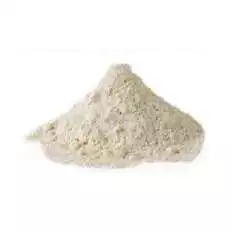


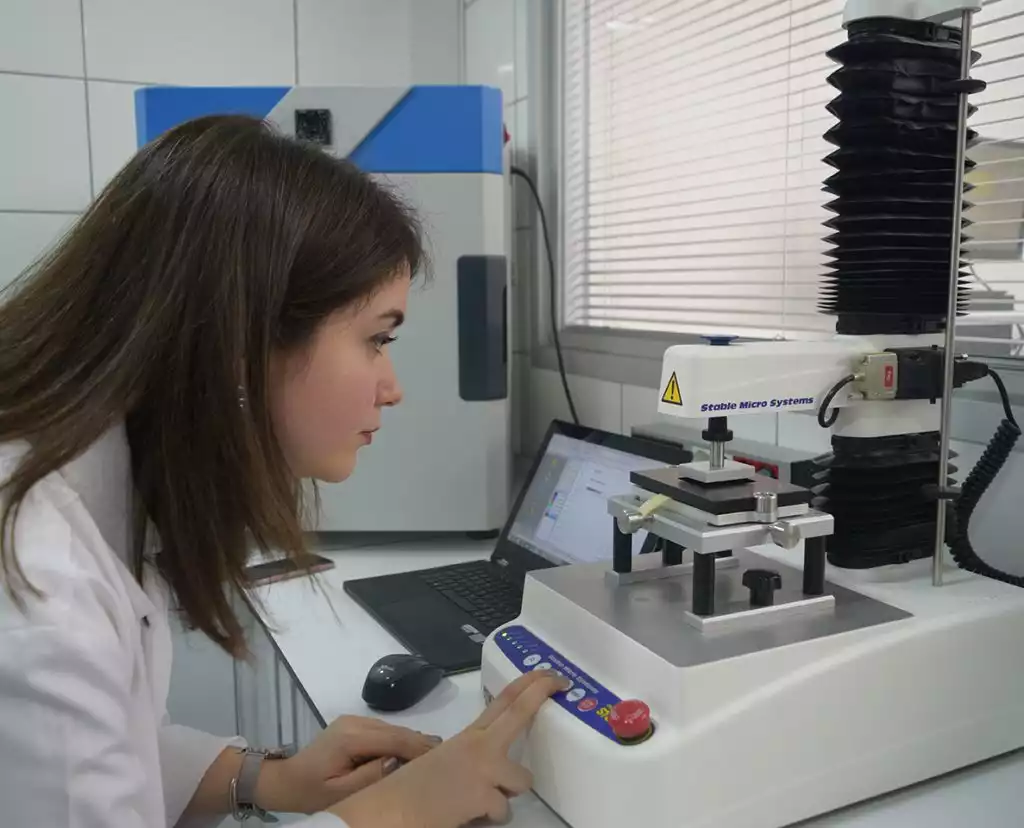
What can be improved in pasta using enzymes?
FIRMNESS
Firmness Analysis
The most important problem of pasta using soft wheat flour is that the structure of cooked pasta is not firm enough.
In our laboratory, we analyze firmness of the cooked pasta with firmness probe.
We provide enzyme formulations that increase pasta firmness.
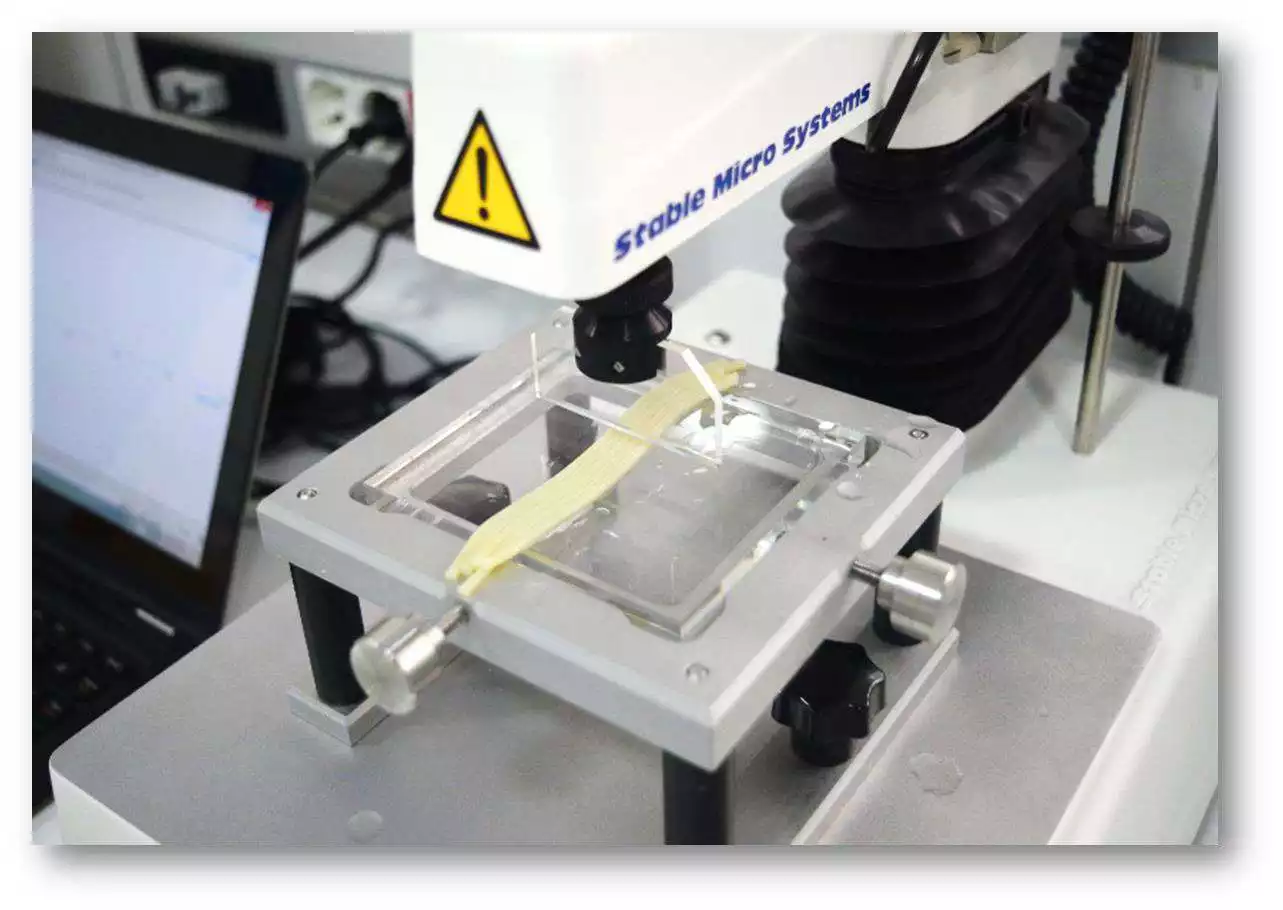
Texture Analyzer Firmness Probe
Pasta trials made by using Turkish Untreated Soft Wheat Flour and Durum Semolina

STICKNESS
Stickiness Analysis
When soft wheat flour is used in pasta production, the cooked pasta becomes stickier than durum pasta.
Stickiness problem can be solved by using the right enzyme mix.
With the stickiness probe in our laboratory, we analyze pasta stickiness and create tailor-made enzyme for formulations for stickiness problem in pasta.
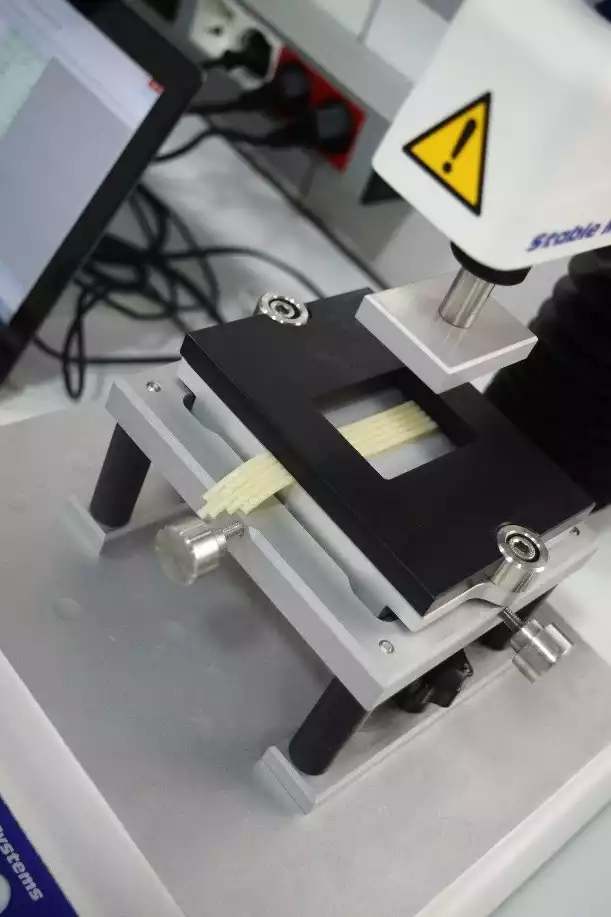
Texture Analyzer Pasta Stickiness Probe
Pasta trials made by using Turkish Untreated Soft Wheat Flour and Durum Semolina

COOKING TOLERANCE
Determination of the Cooking Loss
The cooking tolerance of pasta with soft wheat is lower than that of 100% durum pasta.
This situtation causes an increase in cooking losses in soft wheat pasta.
In our laboratory, we determine cooking loss by centrifuging the cooking water.
We minimize the cooking loss by using enzymes.
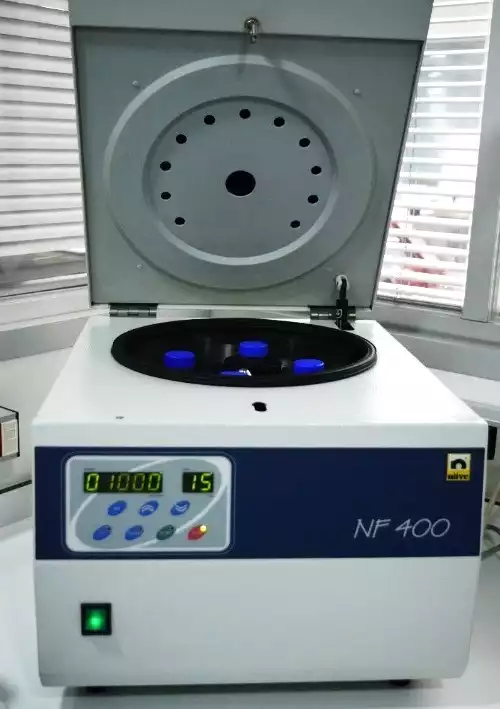
Centrifuge Machine
Comparison of Centrifuged Cooking Water
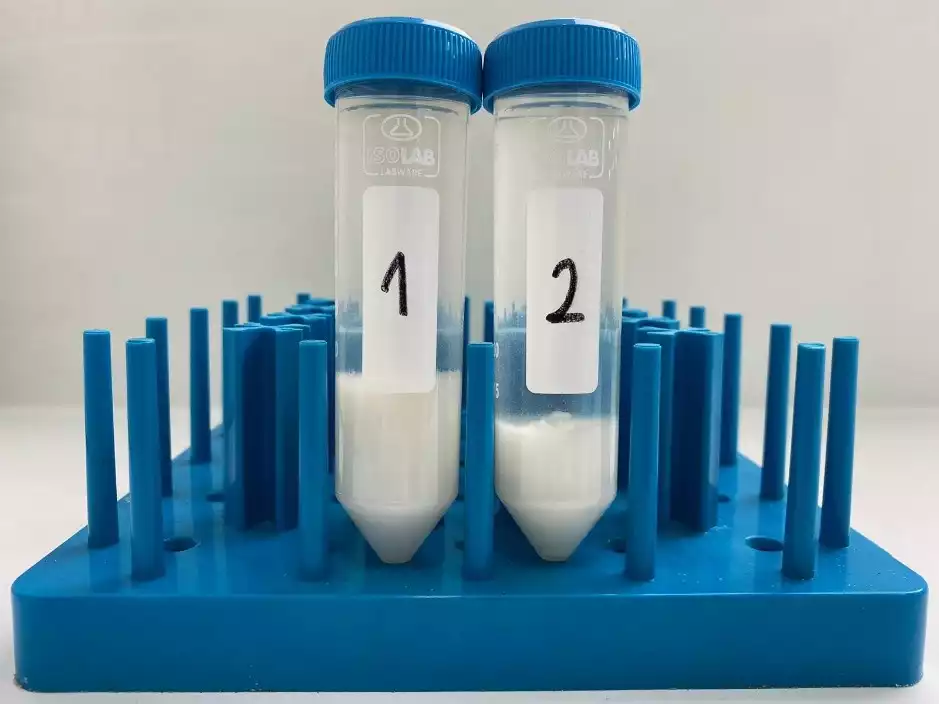
1- Untreated pasta made from 100% soft wheat flour
2- Treated with enzymes pasta made from 100% soft wheat flour
BITING QUALITY
Perfect Biting Quality with Our Enzyme Solutions
In pasta made from soft wheat or low-quality semolina, problems such as softening, disintegration, stickiness, and poor bite quality may occour after cooking. Our enzyme solutions strengthen the dough structure, giving pasta elasticity and resilience. Most importantly, the stickiness issue after cooking is eliminated. This, even when low-quality flour or semolina is used as raw material, the pasta still offers consumers the ideal 'bite sensation' and an outstanding al dente experience in every mouthful.
FLEXIBILITY
Flexibility Analysis
Flexibility is an important property of the dry pasta.
Flexibility problems can occur arising from raw materials in pasta products.
We do flexibility analyses with spaghetti flexure probe and we offer solutions to improve the flexibility thanks to our enzyme blends.
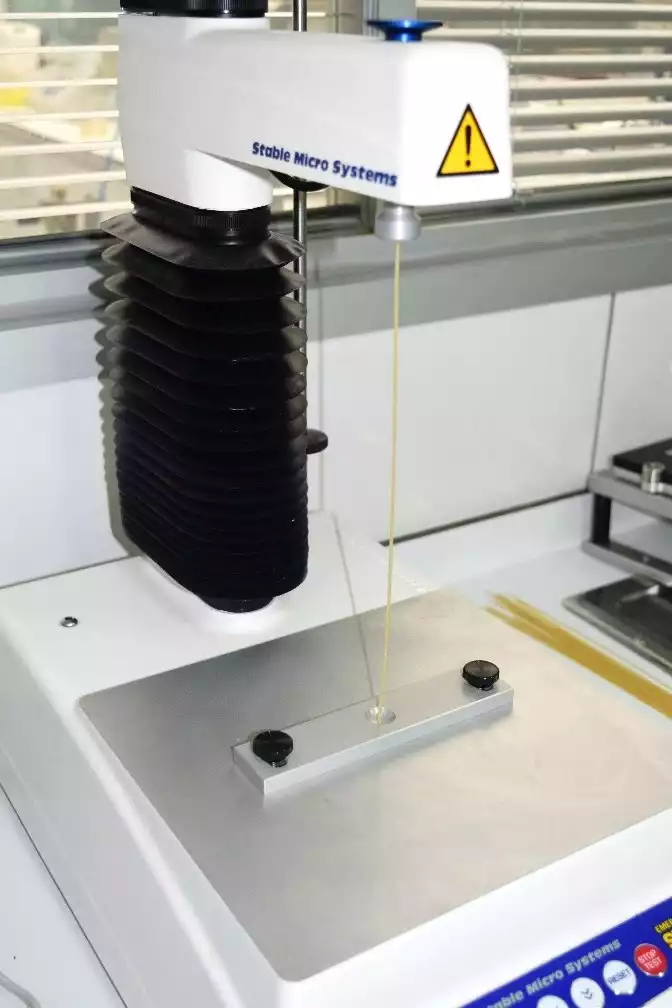
Texture Analyzer Pasta Flexure Probe
Pasta trials made by using Turkish Untreated Soft Wheat Flour and Durum Semolina

COLOR SOLUTIONS
Color Solutions
Mirpain provides solutions to color problems arising from raw material quality with using of colorants in pasta.
We use colorimeter (Konica Minolta CR-410) for color measurements of pasta and provide tailor-made colourant mixes for our customers' raw materials.
There are two types of colorants, artificial and natural.
We formulate colorant mixes according to the customer demands.

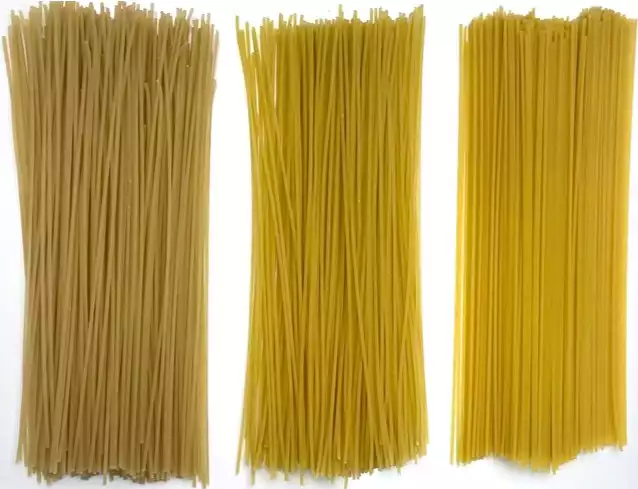
Untreated Pasta (100% Soft Wheat Flour)
Treated with Colourants Pasta (100% Soft Wheat Flour)
100% Durum Semolina Pasta





